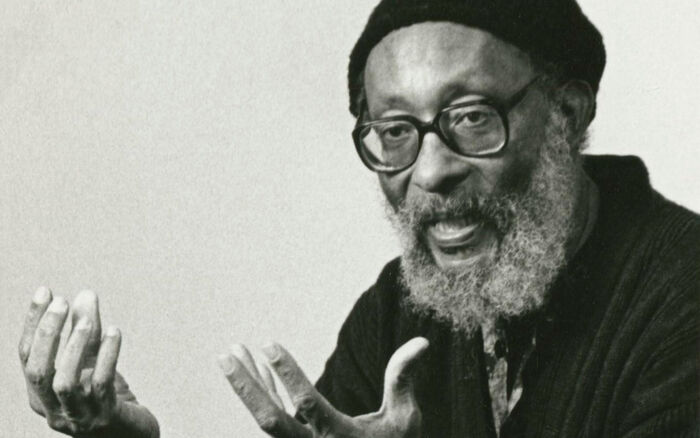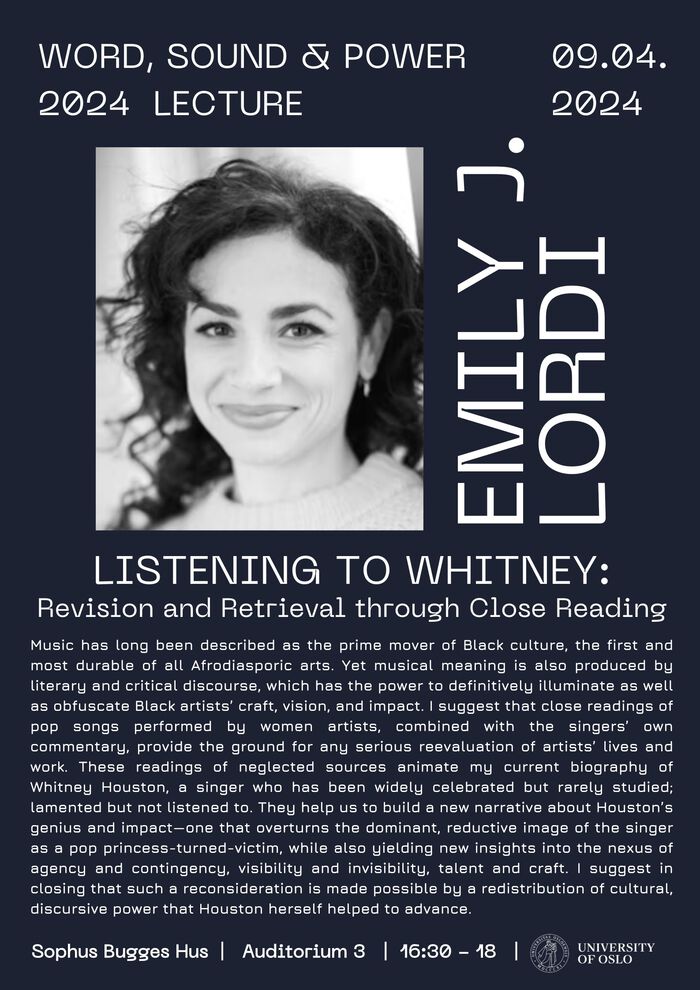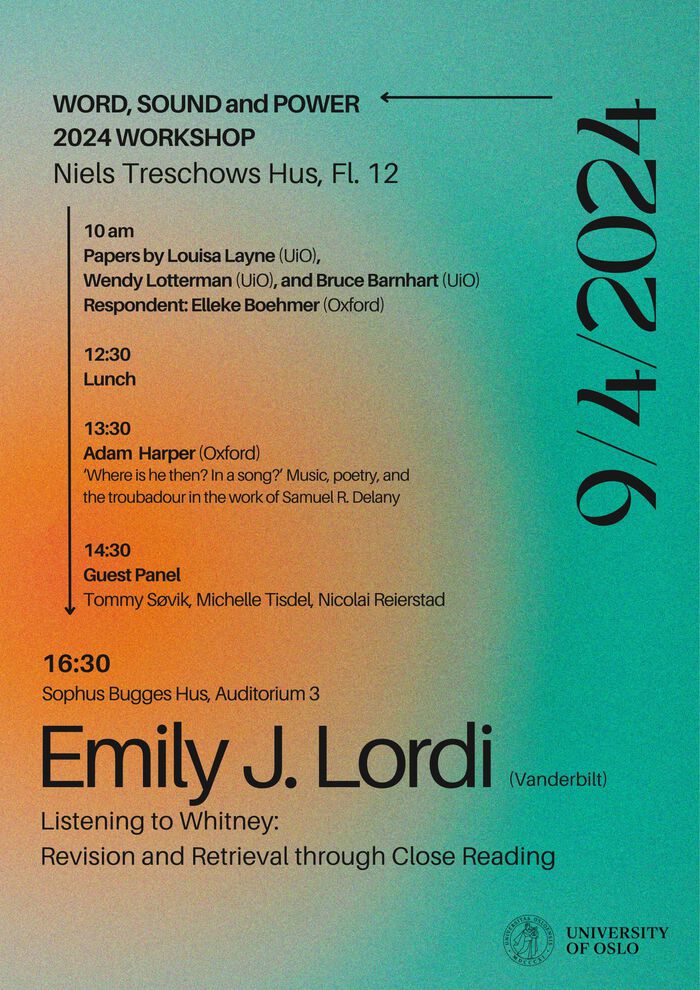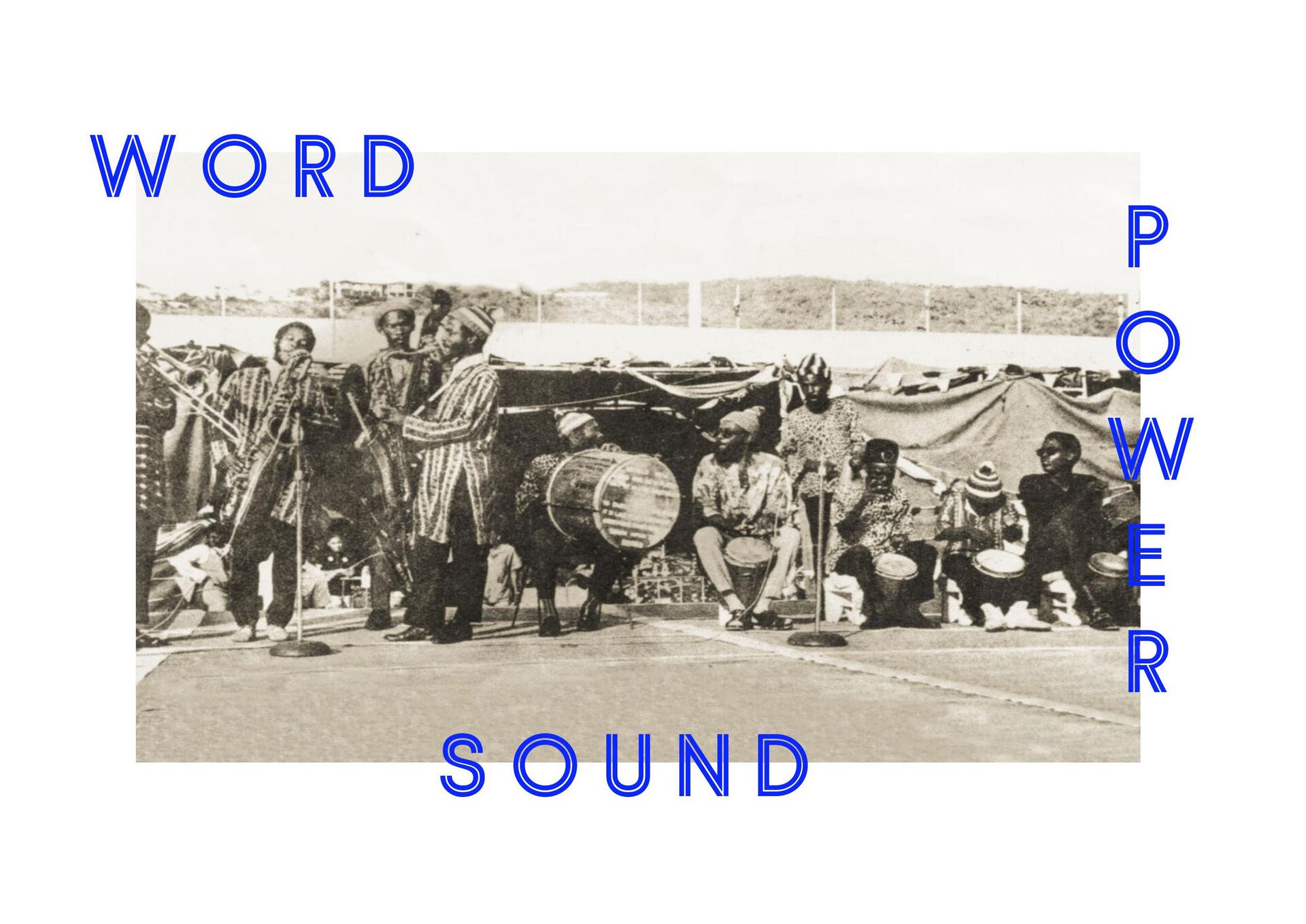Lotterman’s 2-year research project is titled “Lyric Privacy: Possessive-Individualism in US Case Law and Contemporary Poetry.” The postdoctoral research project is focused on the poetry and performances of Fred Moten and M. NourbeSe Philip, but also addresses the work of poets such as Haryette Mullen, Dionne Brand and Claudia Rankine. Lotterman’s project proposes a genealogical parallel between lyric and liberal subjectivity, arguing that the post-Romantic lyric subject is built upon the same presupposition of individuation that underwrites the Western citizen-subject. It argues that the naturalization of personhood within lyric poetry forecloses the space to explore racialization, or the social life of difference.
The project thus reads poets who trouble and challenge traditional British Romantic understandings of the lyrical “I” that aligns the subject of a poem with the interiority of a speaker that is turned away from the public. In this way, these poets expand the literary form of individuation beyond Western liberal terms of privacy and instead produce collective and coalitional forms of enunciation often drawn from music. Lotterman’s research engages with theoretical discussions from across disciplinary boundaries in the Humanities such as Black, Indigenous, and Queer Studies. However, its theoretical framework is rooted in Black and Afrodiasporic knowledge production.
Almost simultaneously with relocating to the University of Oslo and taking up this research fellowship, Lotterman published a debut collection of poetry A Reaction to Someone Coming In (Futurepoem, 2023). I wanted to ask Lotterman about being both a poet and a researcher and try to get a sense of to what degree thinking in these fields can inform each other, especially when researching poets that themselves explore these connections.
How do you view being both a researcher and a poet? Do you like to keep these facets of your life and work separate, or do they inform each other?
One of my supervisors during my PhD studies – Hentyle Yapp – used to say that we need to be the most critical of the things to which we are the most attached. Not because attachment makes them bad or worse than anything else, but because it dulls our attention and incentivizes a positive relation to the object. He was and is an extremely careful reader of law and liberalism, so I took his dictum as an invitation to think of my own attachment to certain epistemological and aesthetic forms that reinforce and reward the individual – that reinforce and reward me. One of those is a certain degree of interiority that functions at the level of both psychic and material reality. I think a lot about the space of the analytic consulting room, the single-family home, and also the space of the seminar room. I’m drawn to interiors, as well as to contemplation of my own psychic interior, which is not a naturally occurring or ontologically given space, but a fiction that is propped up by various discursive traditions. One of those traditions is the lyric, which is a form that I was originally drawn toward uncritically. So I think my interest in poetry presents an occasion to take responsibility for and think critically about the political and material implications of the genre, and especially how the lyric has greased the wheels for a certain investment in the figure of the individual at the expense of the public. So while I’m not exactly writing about the same things in my poetry as I’m investigating in my research, or aspiring to perform in my poetry an ethical position informed by my research, there is definitely something that holds the two together, even if it is as simple as a critical response to an uncritical attachment.
Some of the poets that you write about in your project combine ideas and concepts from very different spheres and disciplines. I think especially of Fred Moten, who is both a poet and a theorist, and M. NourbeSe Philip who is a poet who has practiced as a lawyer and whose poetry explores the relationship between poetic, legal and scientific discourses. Are you in any way inspired or shaped by these ways of blurring the boundaries between poetic and scientific concepts?
At some point during my PhD program I felt confused about the work I was doing as a humanist, for lack of a better word. I was drawn to more concrete interventions, like law, but then re-encountered its limits. Poetry felt especially limp and ineffective as American politics were moving closer towards the far right, and though my research was becoming more historical I felt like I needed to find a form that could address itself to the problems of the present. I think restlessness with form is part of what draws me to writers or thinkers who work across disciplines and discourses. I always tell my students that they aren’t expected to take the value of the humanities for granted, and assign the series of “What is Critique” texts by Kant, Foucault and Butler, as well as the introduction to Wendy Brown and Janey Halley’s Left Legalism/Left Critique. They’re not all the same, but the gist is that critique provides space to think about a response to the problem that doesn’t reproduce its structure. In order to think outside the idiom of the impasse, you must develop a new idiom, and that requires a certain freedom that may not be available within any single form. But especially when it is the law itself that creates impasse or violence, we cannot seek remediation within its terms. I think poetry gives itself to invention more than other discursive forms, but it is also complicit. Where I’ve arrived is something like: what discursive form could really tarry with the problem of the individual and the violence committed under the aegis of liberal freedom? To me, the post-Romantic lyric bears a certain kind of complicity with various political philosophies that emerged during a similar historical period and were naturalized in its generic parameters.
I’m also interested in how freedom, within liberalism, is granted as a condition or property of the individual. So collective struggle is essentially broken up and weakened by a horizon of recognition and material reward that can only address the individual. The coalition stands no chance when violence is only recognized in the idiom of “personal injury.” The incentive to speak in that dialect is powerful, and I don’t blame anyone for seeking legal redress as a tool of survival. But I think we also have to keep speaking and thinking in other registers beyond the terms of liberal freedom. What really interests me is how a form like the lyric might refuse the injunction to individuate from within, so that the form is not entirely discarded, but rather taken up as a particularly relevant stage for the performance of refusal. Saidiya Hartman’s work on the burdened individuality of freedom was extremely formative in thinking through the difference between liberation and liberal freedom. As was “subjectless critique,” which is essentially a way to think through difference without centering the subject. David Eng and Jasbir Puar summarize and revitalize the framework in their introduction to the “Left of Queer” issue of Social Text from 2020. I had also been thinking a lot about the fork in postmodern poetry that reproduced a kind of danming dialectic along the lines of conceptualism and self-writing. It seemed to mirror the disciplinary fork that inaugurated academic postmodernism at the same time as ethnic studies departments were first starting to emerge. As an effect, difference entered the academy as both minor and as object, while whiteness was laundered back in through the post-subjective universality of postmodernism. I wanted to read poetry that would think through difference while neither consenting to its minor particularity, nor centralizing the individual subject that had been tainted by its affiliation with the abstract universality of the modern citizen-subject. I was interested in poetry that sought to move beyond the individual subject, but not as a way to avoid its guilt – rather as a way to stage its indictment. And yet I’m not all interested in Conceptualism, which I see as reproducing some of the disciplinary problems postmodernism. I could go on, but now I’ve strayed quite far from the original question. To tie it all together: I’m interested in writers who investigate the limits of discursive forms from both an aesthetic and historical perspective, and also who stage dialogue between forms in order to create a dynamic genealogy of the subject.
I always come back to this parable, and maybe it’s not as broadly applicable as I think, but there is a passage in Kimberlé Crenshaw’s essay “Demarginalizing the Intersection of Race and Sex” in which she invites the reader to imagine a basement in which people are stacked on each other’s shoulders from floor to ceiling. The floor above the basement represents freedom, and everyone wants to get there. She then suggests that if there were a hatch door on the ceiling, those closest to it could hoist themselves up into the first floor, but no one else in the basement would be able to make use of that solution. If the people on the bottom, however, found a way to get to the first floor, everyone would be able to get there. The people on the bottom are the multiply dispossessed, the unrecognized, the ones most disadvantaged by the blind spots of the law. I think the parable also relates to thought, to grammars of freedom. This isn’t to say that it’s the burden of the dispossessed to draft a blueprint of freedom, but that, far from the charge that difference must lead to identitarian special interest groups, difference is a real precondition of thinking more expansively about freedom and subjectivity. I mean, we probably need to destroy the floor that creates a basement in the first place, or maybe even burn down the whole house, but no one on the first floor is going to propose that if the goal is just to be above ground.
I have noticed that many academics are more comfortable talking about their creative writing and other pursuits when they have already had a long academic career. Do you think it is rarer and maybe harder for early career researchers to talk about how their research is informed by other creative projects and “non-academic” forms of engagement?
I feel lucky that I’ve always received a lot of support for nonacademic writing. NYU’s Department of Comparative Literature seems interested in researchers who work across forms, or at least that can be extrapolated from the number of poets they accept as doctoral students. Fred is also part of the department now, and Kamau Brathwaite was there before. There is absolutely a real risk of not being taken seriously as a researcher, and it’s something to be wary of, but if a department is not hospitable to people working in a tradition that forms the basis of its research, I doubt I’d be a good fit. And vice versa. I’ve felt especially welcomed at UiO as both a researcher and poet by everyone I’ve met. It has been a gift.
Do you think it is an advantage as a researcher writing about lyric and poetry to have a good understanding of how poems are created in addition to having read widely?
I think writing makes you a closer reader, and reading makes you a better writer. Paying attention to my own attachment to lyric subjectivity may also provide clues to the genre, but I think there are some incredible readers of poetry who don’t write – Barbara Johnson, Hortense Spillers, Walter Benjamin, to name a few. To be honest, sometimes I think being a poet obstructs my critical writing. I get incredibly attached to internal vowel sounds and maintaining a consistency, particularly when it comes to the long and short “e.” I’ve joked before that I wouldn’t have sought to compare liberalism and lyricism if they didn’t both start with “l.” I don’t think that’s actually true, but I’m definitely drawn to aesthetic affinities, and musicality isn’t typically the goal of research. Then again, maybe it can be.




